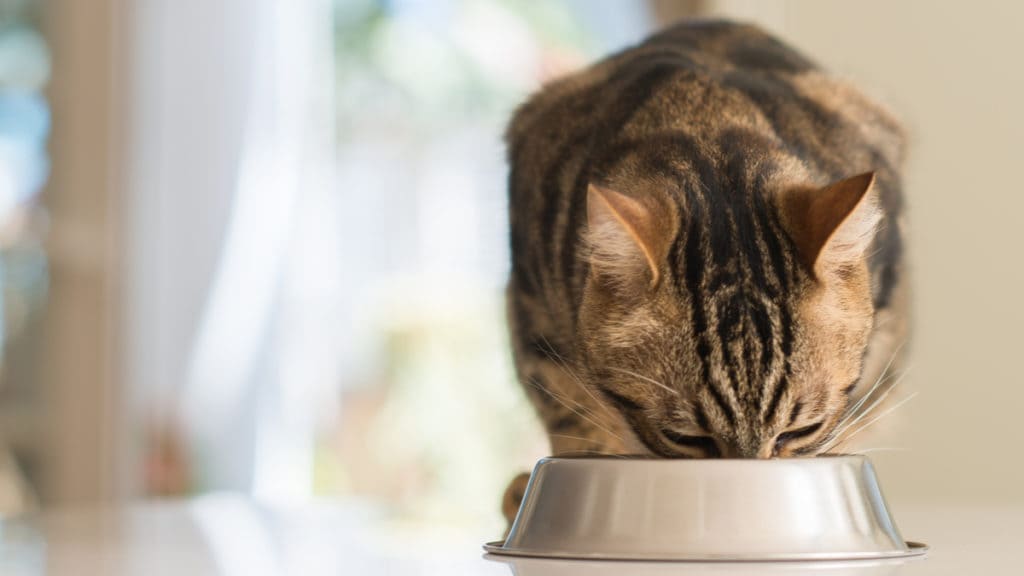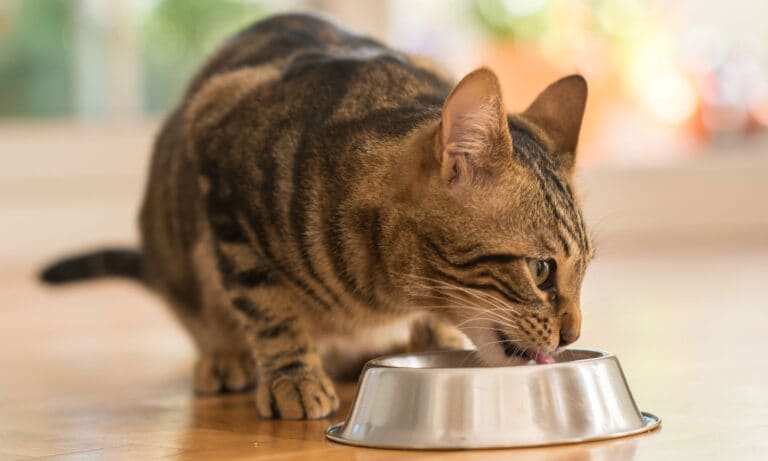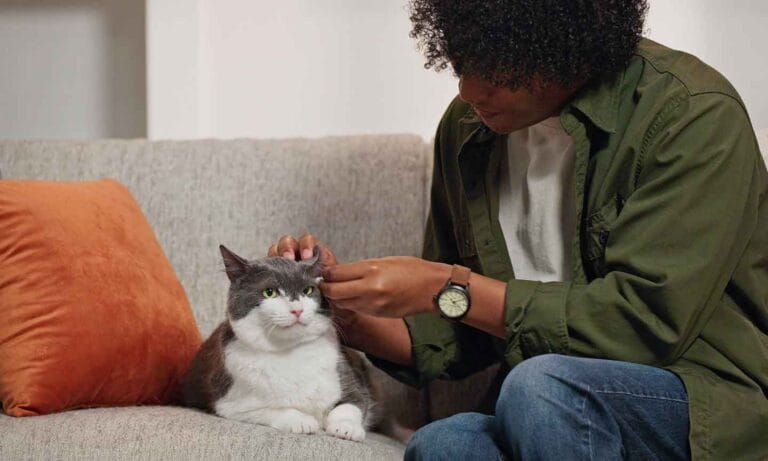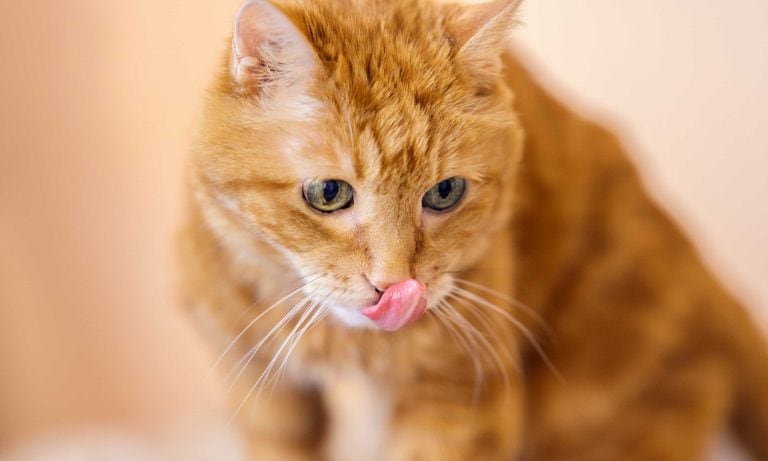Switching up your cat’s lifestyle, especially when illness strikes, is normal, and catering to your cat’s nutritional needs is vital. Here are five common cat health conditions that can be supported, at least in part, with a veterinary exclusive diet.
1
Feline Lower Urinary Tract Disease
Appropriate treatment depends on the specific disease involved. For example, some types of bladder stones require surgical removal while others can be dissolved with a diet change.
Feeding cats a veterinary exclusive diet in the first place can help prevent FLUTD because these foods promote overall urinary health and limit the formation of crystals and stones.
2
Cat Constipation
Cats who experience constipation once are more likely to become constipated again. The increased risk may be related to diet, lifestyle or an underlying health problem.
Cat constipation symptoms to watch out for include a cat straining to defecate, painful defecation, abdominal discomfort, poor appetite and a cat producing hard feces or small amounts of liquid feces.
Once a veterinarian removes any feces that are stuck in the cat’s colon, he or she often will recommend a veterinary exclusive diet to help prevent a reoccurrence of constipation. Diets that contain highly digestible proteins, prebiotics, omega-3 fatty acids, and soluble and insoluble fiber sources can help promote a healthy digestive function.
3
Feline Food Allergies
Cat food allergies can cause skin and/or digestive problems in affected cats. The most common sign is itchiness, which may be accompanied by ear infections, skin lesions and sometimes poor appetite, vomiting and diarrhea.
Because other health problems have similar clinical signs, a food trial using a veterinary exclusive diet is necessary before a vet can definitively diagnose a cat with a food allergy.
Research shows that the most common feline food allergens are beef, fish and chicken.* Therefore, a diet made from unique protein sources, like rabbit, can be used to diagnose as well as treat food allergies in cats. Another option is to feed that cat a diet made from proteins that have been broken down into tiny fragments that are no longer allergenic.
4
Kidney Disease
Kidney disease is the leading killer of older cats. If caught early, however, you can help your cat thrive for a longer period of time. Initial symptoms of kidney disease in cats include increased thirst, increased urination, poor appetite and weight loss.
Among other functions, the kidneys remove nitrogenous waste products from a cat’s bloodstream. Certain foods can help reduce the production of these nitrogenous waste products and can help cats feel better, improve their appetite and even increase their lifespan.
Foods that are designed for cats with kidney disease and have many options for taste and texture can help appeal to even the most finicky feline.
5
Diabetes Mellitus
At no time does food play a bigger role in disease management than when a cat develops diabetes. The interplay between diet and insulin, whether it still is produced by the cat’s pancreas or is given by injection, is critical.
Diets that are high in protein, low in carbohydrate and provide a proper mix of dietary fiber can help moderate the wild swings in blood sugar levels that put a diabetic cat’s health and life at risk.
Early signs of feline diabetes include increased thirst, increased urination and weight loss despite a good appetite. If you notice these or any other worrisome symptoms, talk to your veterinarian and ask if a Royal Canin veterinary exclusive diet might be in your pet’s best interest.
Regular veterinary visits are essential to your cat’s health. They enable your veterinarian to uncover health concerns earlier. As cats get older, schedule twice-yearly senior wellness visits. Of course, any health concerns you have in-between checkups also should be addressed in a timely manner.
Reference
* Critically appraised topic on adverse food reactions of companion animals (2): common food allergen sources in dogs and cats. Mueller RS, Olivry T, Prélaud P. BMC Vet Res. 2016 Jan 12;12:9.
Share:









